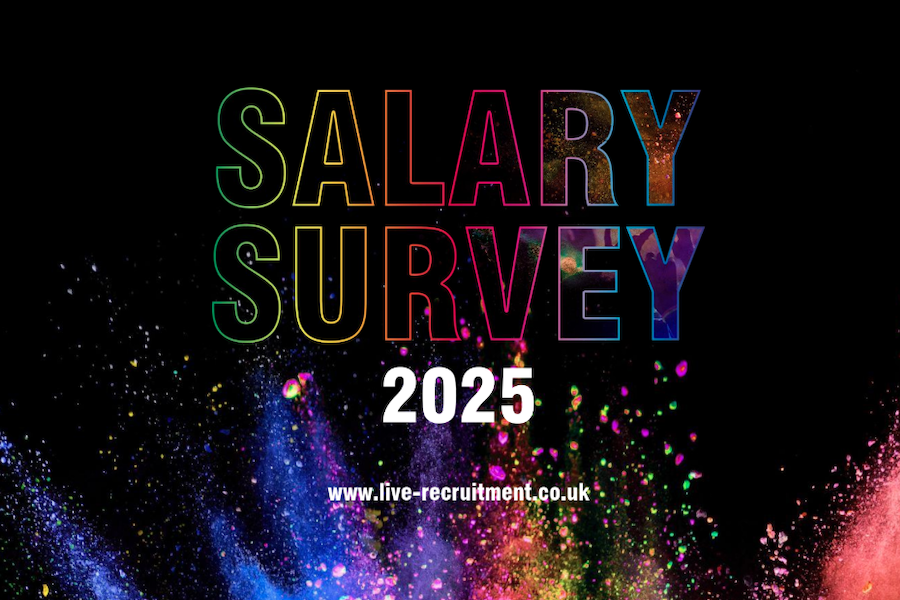The salary landscape in the UK events sector reflects a cautious but steady upward trend, influenced by talent shortages, hybrid work normalisation, and increasing focus on work-life balance and culture, according to Live Recruitment’s 2025 Salary Survey.
The report provides invaluable insights into the current state of the UK events industry, capturing emerging trends, salary benchmarks, and the shifting priorities of both employers and professionals as the sector adapts to a rapidly changing talent landscape.
Here’s the key findings:
1. Salaries on the rise, but growth levels off
While salaries in the events sector continue to increase, the pace of growth has moderated compared to recent years. This reflects a maturing market where employers are focusing more on retention and long-term growth amid ongoing economic uncertainty. Notably, the survey highlights a continued flattening of regional salary differences, largely driven by the widespread adoption of hybrid working, which has eroded the traditional London premium outside of venue-specific roles.
2. Flexible work as a key differentiator
Hybrid work has become the norm, but the real competitive edge for employers now lies in offering true flexibility. Beyond just where people work, professionals are increasingly seeking control over when and how they work, making this a critical consideration for employers looking to attract top talent.
3. Benefits as a deciding factor
In a market where salary alone no longer guarantees retention, benefits have become a critical part of the equation. Professionals now expect packages that include private healthcare, additional leave, wellbeing support, and flexible working arrangements. These perks are increasingly being monetised in the eyes of candidates, especially amid cost-of-living pressures.
4. Culture remains non-negotiable
Organisational culture continues to be a deciding factor for candidates, many of whom are unwilling to compromise on values even in the face of attractive financial offers. Companies that invest in inclusive, socially responsible, and growth-oriented cultures are better positioned to secure and retain top talent.
5. Skills shortages persist
Despite the events sector’s resilience, talent shortages remain a significant challenge. Many experienced professionals left the industry during the COVID-19 pandemic, and the pipeline of new entrants is yet to fully recover. Employers are increasingly looking to adjacent sectors for talent, reflecting the evolving nature of the industry.
Top Salary Benchmarks by Role
Project Management & Operations
- Project Executive: £27,000 – £33,000
- Project/Event Manager: £35,000 – £45,000
- Project Director: £60,000 – £75,000
- Operations Manager/Director: £60,000 – £75,000
Client Services
- Account Executive (Grad): £26,000 – £30,000
- Account Manager: £35,000 – £45,000
- Account Director: £60,000 – £75,000
- Client Services Director: £75,000 – £100,000+
Sales
- Business Development Manager: £40,000 – £55,000 + OTE
- Sales Director/Head of Sales: £60,000 – £75,000 + OTE
- Commission structures often include uncapped OTE with GP-based percentages (3–10%).
Production
- Producer: £50,000 – £60,000
- Executive Producer: £80,000+
- Production Director: £70,000+
Design & Digital
- Senior 3D Designer: £50,000 – £60,000
- Creative Director: £75,000 – £110,000
- Senior UX/UI Designer: £45,000 – £70,000
Venue Roles (London-Based)
- Sales & Events Executive: £28,000 – £32,000 + OTE
- Event Manager: £35,000 – £42,000
- Head of Events/Operations: £60,000 – £75,000

